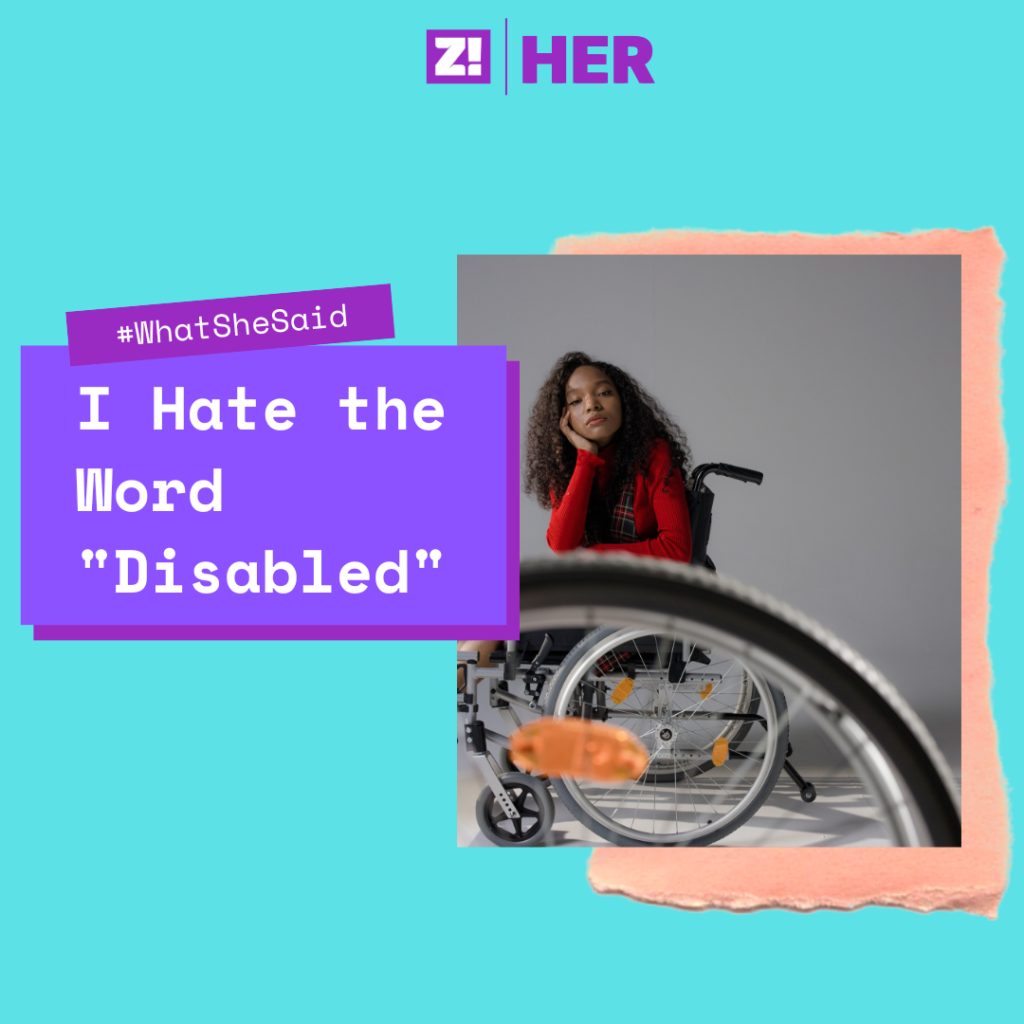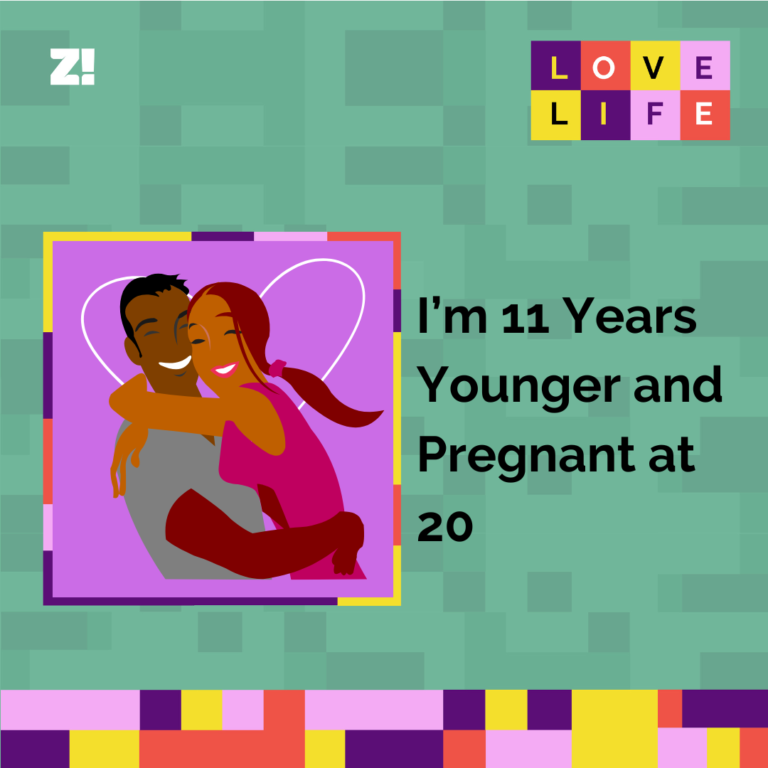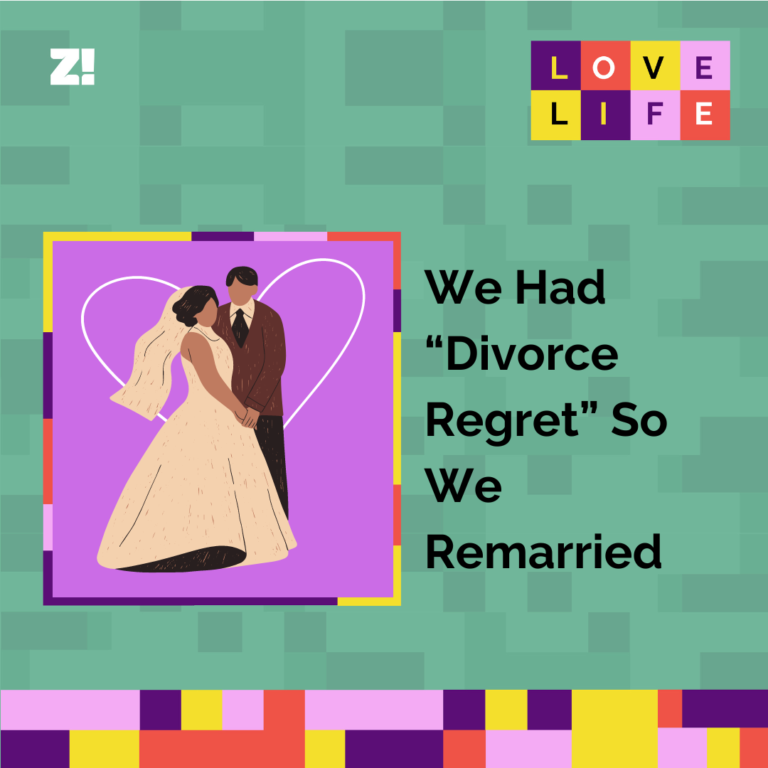Navigating life as a woman in the world today is interesting. From Nigeria to Timbuktu, it’ll amaze you how similar all our experiences are. Every Wednesday, women the world over will share their experiences on everything from sex to politics right here.

This week’s #ZikokoWhatSheSaid subject is a 49-year-old Nigerian woman who lost a leg after an okada accident. She talks about waking up to find a stump where her leg used to be, what it’s like to lose a limb and what she thinks about how people treat amputees.
Where should we begin?
In 1991. My mum had sent me on some errand to the market. As usual, I flagged an okada and jumped on. More so than now, we used okadas to go everywhere. They were fast, one was always outside your gate, and they don’t call price like now. They were quite affordable. I didn’t even think about it twice.
It couldn’t have been up to five minutes later that a private car almost ran into us, and the okada had to swerve out of the way. That’s the last thing I remember until I woke up in the hospital. They said I fell off the okada, and it ran over my leg while the rider was trying to brake. He must’ve accelerated instead. I thank God because he saved me from being conscious and experiencing the trauma and pain. Newspapers ran my story.
You didn’t feel the pain?
Oh, I did. But when I woke up days after, they’d already done all the surgeries and pumped me with painkillers. I can only imagine how painful it would’ve been when the machine actually crushed my legs.
Both legs?
Yes, but my left leg was salvaged through some bone restructuring at Igbobi. My right leg took the direct impact, and unfortunately, my knee was crushed. One of my greatest regrets is that it wasn’t somewhere lower. I would’ve been able to use a prosthesis right away.
How did your knee affect that?
The knee is a major joint that helps you move your legs properly — sit, stand, walk, anything really. It’s hard to replicate with prostheses, and in the 90s, it was hard and expensive to get such advanced ones.
I’m so sorry
Yep. So I was stuck in a wheelchair, which back then, wasn’t very lightweight.
Let’s circle back to when you woke up for the first time at the hospital
When I woke up, no one told me my leg had been cut off. Although I sensed everyone was behaving weird, I honestly didn’t feel anything amiss for some days. I was heavily drugged and barely sentient.
Why didn’t your family or the doctors tell you, and didn’t they need your prior permission?
I was unconscious for about four days, and according to them, they needed to amputate to save my life. The giant wound had gotten infected. My bones were unsalvagable anyway, and I was a minor, so my parents could make the decision on my behalf. They chose to save my life despite the costs.
How did you find out then?
One day, my missing leg started throbbing — what I now know as phantom leg pain.
I started feeling small pain in the knee that was no longer there, and the ghost of my toes was twitching. The sensations were barely there, but they were uncomfortable, so I tried to move the leg. There was nothing there. I think I almost fainted when I touched it and felt… nothing.
Damn
It was just a slight aching discomfort at first. Over the next few weeks, it progressed to severe pain, intermittent tremors and muscle spasms. The doctors said it was mixed signals from my brain and leg nerves trying to get used to the missing section. It was also another consequence of an above-the-knee amputation.
Tell me about readjusting
The story gets a bit darker. I stayed a month under close observation at the hospital because amputations, especially large ones like mine caused by an accident, are high-risk. The list of possible complications was endless; one of them being that my body, helped by my brain, could decide to attack me from within because they’re confused about the missing set of muscles and nerves.
I also bled more than expected during the surgery and had an infection on the incision, so they couldn’t stitch the stump immediately. I had tubes in my skin to drain the infected fluids, which had to be changed regularly.
They told me I could get a blood clot in any of my limbs which might break loose and travel to my lungs or brain. If it went to my lungs, I’d have trouble breathing; if it went to my brain, it’d cause a stroke. Thankfully, none of those happened. The infection eventually went away. They stitched and bandaged me up then added a cast.
What happened next?
Two months of aggressive physical therapy in a nursing facility. I had to learn things like how to breathe differently and cough regularly, to prevent lung infection, and there were a lot of sleeping instructions to keep my arteries from hardening. Then the massages and wearing a compression sock. It was the most painful experience I’ve ever had to date.
The hospital bills, and everything that came after, including buying a wheelchair, put my parents in a debt they never recovered from — they both died before they could even finish repaying. We went from being safely middle class to lower class. We had to squat with different family members because we could no longer pay rent and barely afford to eat, after paying for the monthly therapy. I moved with my parents into my paternal aunt’s house — my mum was miserable there — and my older siblings had to stay with my grandparents until they moved out on their own.
But my family thought it was important that I learn to be as mobile as I could at that early stage. They were very vocal about me not growing up to be a liability, and I’m grateful to them for that now, even though I wasn’t so much then.
RELATED: How One Serious Illness Can Make You Go Bankrupt
Why not?
I was a teenager. I was angry and frustrated. My secondary education was delayed for a year because of the accident, but I didn’t even want to return. To be honest, I wonder why I never considered suicide — probably because they’d banged it in our heads that I’d go straight to hell — because that’s how sad I was. Even though my schoolmates did their best to be nice when I returned to school, I was filled with bitterness and resentment.
The student body and PTA contributed money to pay for my SS 3 fees and WAEC registration, a total of about ₦600, and I had all my classes in the principal’s office. In hindsight, that was such a heartwarming show of humanity, and I’m grateful for that kindness.
That’s really sweet. What happened after school?
I got an average result but didn’t continue school until three years later, in 1995. My self-esteem was completely gone. I stayed home, mostly in bed, and only went out when the family forced me to go with them to church or my mum made me assist her in selling biscuits and drinks in front of my aunty’s house. I hated selling with her the most because people would always stop to say something pitiful to me.
What are some of the things you hate people saying to you?
There’s nothing I hate more than being referred to as “disabled”. I honestly don’t know why, but the word sounds derogatory. I suppose it’s better than “crippled”, but still, can’t I just be identified by my given name. What’s the point of names if we’re so obsessed with labels?
I also wish people wouldn’t immediately judge my abilities. “But you can’t do that”, just because they can’t imagine someone missing a leg doing certain activities.
Or when people just want to help you with EVERYTHING. At least, ask me if I need help first. But I think what makes me feel bad the most is when people say stuff like, “You inspire me” or “You’re so brave” because it’s really like they’re saying, “How could you live with yourself like this?” and it can get depressing quickly.
I hear you. So you went back to school after three years?
I started volunteering at an NGO for people with disabilities, to get away from my aunt’s house during the day. A centre opened two streets away, and I just started going there. It was hard because I had to wheel myself along the main road, enduring stares, ignorant comments and bullying. People gave me alms I didn’t ask for on some occasions. I also practically had to sneak out of the house at first. But I just wanted to be somewhere with people who looked like me.
It was an informal school, where they had classes for people aged 10 to 20, doing everything from reading and writing to art and crafts. They also tutored the beneficiaries on normal school subjects. I worked as a sort of teacher’s assistant, mostly running errands, for free.
After some weeks, they started giving me lunch — a simple plate of jollof rice and meat. And some months in, they helped me get a small scholarship to take computer courses and Microsoft certification exams. That’s all the formal education I’ve had since then. Most of the work I do today is advocacy within social organisations like that one.
Did you make friends?
I had friends from before the accident who drifted away because of my self-sabotaging behaviour. Now, my strongest relationships are the ones I make at work. I have many fellow amputee friends, and constantly surrounding myself with them boosted my sense of self. However, I married a non-amputee when I was 36 — a man I met in church — but we separated six years ago. Even though it wasn’t on good terms, we’re friends today, and we support each other in raising our 11-year-old daughter.
You prefer the terms “amputee” and “non-amputee”. Why?
These are medical terms — I had an amputation, so I’m an amputee; you didn’t, so you’re not an amputee. If you had to use a label, use those instead of saying someone is disabled vs ablebodied, which are ableist terms. I’m still ablebodied because I run, bike, swim — things I couldn’t do before the amputation.
How do you feel now? Do you still get sad?
Finally getting a prosthetic leg when I turned 30 helped. It was exciting that I could finally wear matching shoes again.
I’ve learnt that life is a constant struggle with depression regardless of what lemons it throws. Nigerians don’t know what it means to be sensitive and discreet, so it’s not enough that they point out every time I gain weight, they must also have something to say about my prosthetic leg. Children are especially direct and inquisitive about it. Today, I feel happy most of the time. I have a better perspective on life, so I don’t think too much about things I can’t help — except late at night, when I can’t help the thoughts flying in.
I’m glad you got a prosthesis!
I’m not sure I’d have ever got better mentally without it because it changed my life and was a giant boost to my self-esteem. It came with it’s own struggles, of course. I had to work for a long time to find one that’s not only comfortable but can also do everything I want to do. It cost as much as a good car, so I also had to spend months applying for a grant to get it. And I’ve had to replace it a couple of times since then because, like any gadget, they get faulty.
Even though I lost my leg 32 years ago, I still have phantom sensations to this day. Before I go to bed at night, I get a pins-and-needles feeling, like my leg is asleep, and I can feel my foot. It’s annoying because I know my leg isn’t there, and I don’t want to feel it. But I’d rather have that sensation than pain. Some people who’ve lost a limb are in pain their entire lives. I’m grateful for small mercies.
RELATED: What She Said: I Haven’t Stepped Out of My Front Door in 10 Months
For more stories like this, check out our #WhatSheSaid and for more women like content, click here
If you’d like to be my next subject on #WhatSheSaid, click here to tell me why




